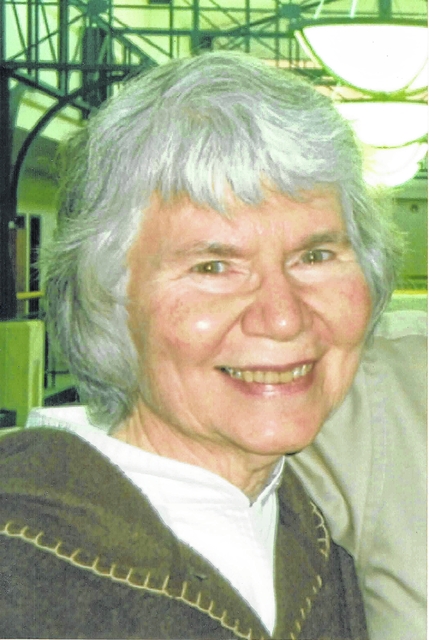
For a long time now I have been thinking of writing about my hearing aids, but I didn’t want to admit that I have hearing loss. Recently, I read a book titled “Shouting Won’t Help,” by Katherine Bouton (2013), and learned that I am one of the 48 million people in America who has hearing loss. I don’t remember the exact day and time when I first realized I had a hearing problem. But, I do remember about 15 years ago, being in the back seat of a car and trying to have a conversation with someone in the front seat, and them saying to me, “You need a hearing aid!” At that time, having that said to me felt like an insult. But eventually, after having more signs of being hard of hearing, I made an appointment to have my hearing tested, and sure enough, I had a serious hearing loss. Therefore, I got my first hearing aids about 12 years ago.
I was fortunate that they lasted for 12 years. I had taken very good care not to lose them or drop them in water. But, recently, even with my 12-year-old hearing aids in, I could not hear anyone speaking at a normal level, especially ones that I could not see their face, in order to “read their lips.” And by then, I had long been using the closed caption on the TV to understand what was being said. So, I went back to the same place where I got my first hearing aids. I had more tests, and a diagnosis of a need for stronger, updated aids. This was when I found out that in the past year, I had lost an additional 50 percent of my hearing in one ear, and a smaller amount in the other. Therefore, I had to get a new set of hearing aids to help with my current loss. And while there for an appointment, I picked up the book from a table in their waiting room, that I referred to above, and decided to read it to learn more about my invisible disability.
The following is an assortment of facts I learned from Bouton’s book:
1. Many of us are responsible for our own hearing loss. It’s the noise we subject ourselves to day after day.
2. People who are raised where there is very little noise can still have perfect hearing when they are over 100 years of age.
3. The lighter your skin color, the higher your risk of hearing loss. Melanin exists in the inner ear. So the darker your skin, the more pigment in the inner ear.
4. Ears are most vulnerable to damage when a child is young, or in their teen years at rock concerts, or when playing a lot of video games.
5. It’s better to hear nothing than it is to hear too much.
6. What is music to my ears may be just noise to yours. You probably would not enjoy a sporting event in complete silence.
7. Restaurants should cut down on the level of noise in the background, because it would be better to get to have a comfortable conversation.
8. Hearing loss is an invisible disability. (No cane, no crutches.)
9. If you are speaking to a hearing impaired person, and they don’t understand, rephrase what you have already said.
10. If you are faking it, people might think you are arrogant, remote, absent minded, distracted, or just plain stupid.
11. Usually you can’t remember the name of a new person you have just met, because you are so busy trying to figure out what has been said.
12. The greater the hearing loss, the higher the likelihood of dementia, which is deeply distressing to the hearing impaired person.
13. It is unthinkable to make fun of people with severe vision problems, obesity jokes are tasteless, but still, a hearing loss seems to be fair game.
14. Even the best devices are a poor substitute for nature’s creation.
15. Stress makes your hearing loss a lot worse.
16. Depression leads to withdrawal, as does the fact that not being able to hear makes you uncomfortable in social situations.
17. Pretending to have normal hearing, day after day, is exhausting.
18. People who lose their hearing are afraid to be open about it because they fear the prejudice, as well as seeming much older.
19. Hearing impaired persons can’t hear anyone with a beard or mustache because you can’t read their lips.
20. Be sure to look at the person with a hearing loss when you talk to them, to be sure of having their full attention.
21. Hearing problems outnumber vision problems by tens of millions.
22. Two thirds of Americans, aged 70 and over, are hearing impaired.
23. Only 1 in 5 who need hearing aids actually ever get them.
24.”Deaf” is the term for people who have no hearing. “Hard of hearing” is a politically correct term for people who have a hearing loss.
If you desire more information about things like tinnitus or vertigo, as well as a lot more about hearing loss, check out the book “Shouting Won’t Help — Why I, and 50 Million Other Americans, Can’t Hear You” written by Katherine Bouton.
My reason for writing this article is in hopes of taking some of the stigma away from being a person who feels they have to hide their invisible disability of being “hard of hearing.”


